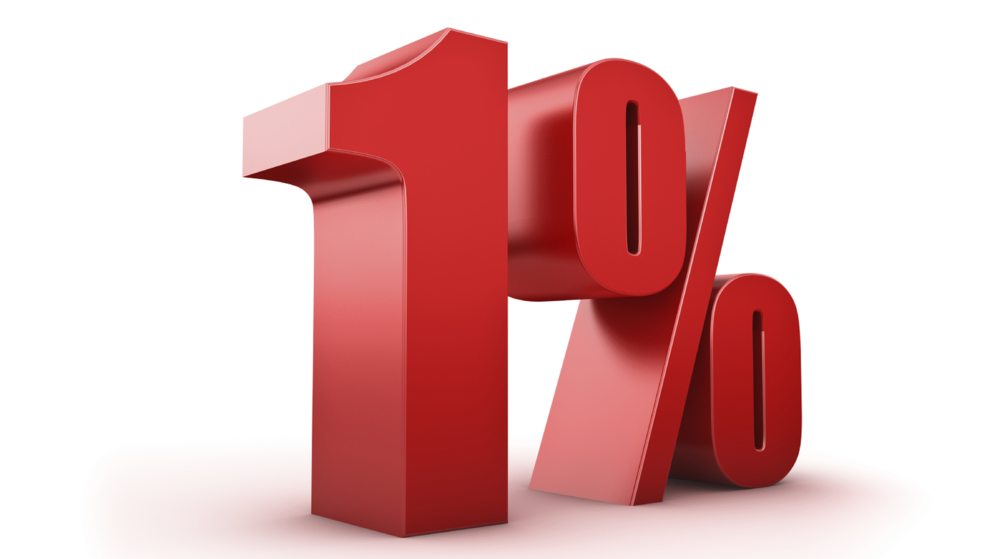
At some point in the late 1800s—no one is very certain precisely when—a man named Vilfredo Pareto was whining about in his nursery when he made a little yet fascinating disclosure.
Pareto saw that a modest number of pea pods in his nursery created most of the peas.
Presently, Pareto was a scientific individual. He functioned as a financial specialist and one of his enduring inheritances was transforming financial aspects into a science established in hard numbers and certainties. Not at all like numerous financial specialists of the time, Pareto's papers and books were loaded up with conditions. What's more, the peas in his nursery had gotten his numerical cerebrum underway.
Consider the possibility that this inconsistent appropriation was available in different everyday issues too.
At the time, Pareto was examining riches in different countries. As he was Italian, he started by breaking down the conveyance of riches in Italy. Shockingly, he found that roughly 80 percent of the land in Italy was possessed by only 20 percent of the individuals. Like the pea pods in his nursery, the greater part of the assets was constrained by a minority of the players.
Pareto proceeded with his examination in different countries and an example started to rise. For example, in the wake of pouring through the English annual expense records, he saw that roughly 30 percent of the populace in Extraordinary England earned around 70 percent of the all-out pay.
As he kept investigating, Pareto found that the numbers were never fully the equivalent, however, the pattern was strikingly predictable. Most of the remunerations consistently appeared to gather to a little level of individuals. This thought few things represent most of the outcomes got known as the Pareto Standard or, all the more regularly, the 80/20 Principle.
At the time, Pareto was contemplating riches in different countries. As he was Italian, he started by investigating the appropriation of riches in Italy. Shockingly, he found that around 80 percent of the land in Italy was claimed by only 20 percent of the individuals. Like the pea pods in his nursery, the vast majority of the assets were constrained by a minority of the players.
Pareto proceeded with his investigation in different countries and an example started to develop. For example, subsequent to poring through the English annual duty records, he saw that around 30 percent of the populace in Extraordinary England earned around 70 percent of the absolute pay.
Champ Take-All Impacts in singular rivalries can prompt Victor Take-Most Impacts in the bigger round of life.
From this worthwhile situation—with the gold decoration close by or with money tucked neatly away or from the seat of the Oval Office—the champ starts the way toward collecting focal points that make it simpler for them to win whenever around. What started as a little edge is beginning to incline toward the 80/20 Standard.
On the off chance that one street is marginally more helpful than the other, at that point more individuals travel down it and more organizations are probably going to work close by it. As more organizations are constructed, individuals have extra purposes behind utilizing the street thus it gets much more traffic. Before long you end up with an expression like, "20 percent of the streets get 80 percent of the traffic."
On the off chance that one business has an innovation that is more imaginative than another, at that point more individuals will purchase their items. As the business gets more cash-flow, they can put resources into extra innovation, pay more significant compensations, and contract better individuals. When the challenge gets up to speed, there are different purposes behind clients to stay with the main business. Before long, one organization commands the business.
On the off chance that one writer hits the hit rundown, at that point distributors will be progressively keen on their next book. At the point when the subsequent book turns out, the distributor will put more assets and promoting power behind it, which makes it simpler to hit the hit rundown for a subsequent time. Before long, you start to comprehend why a couple of books sell a large number of duplicates while the dominant part battle to sell two or three thousand duplicates.
The edge among great and extraordinary is smaller than it appears. What starts as a slight edge over the challenge mixes with each extra challenge. Winning one rivalry improves your chances of winning the following. Each extra cycle further bonds the status of those at the top.
After some time, those that somewhat better end up with most of the prizes. Those that are somewhat more regrettable end up with by nothing. This thought is here and there alluded to as The Matthew Impact, which references an entry in The Good book that says, "For each one of the individuals who have, more will be given, and they will have a plenitude; however, from the individuals who have nothing, even what they have will be removed."
Presently, how about we return to the inquiry I presented close to the start of this article. For what reason do a couple of individuals, groups, and associations appreciate the main part of the prizes throughout everyday life?
Little contrasts in execution can prompt very inconsistent conveyances when rehashed after some time. This is one more motivation behind why propensities are so significant. The individuals and associations that can accomplish the correct things, all the more reliably are bound to keep up a slight edge and amass unbalanced rewards after some time.
You just should be somewhat superior to your opposition, yet on the off chance that you can keep up a slight edge today and tomorrow and the day from that point onward, at that point you can rehash the way toward winning by only a tad again and again. What's more, on account of Victor Take-All Impacts, each success conveys outsized prizes.
We can call this The 1 Percent Rule. The 1 Percent Decide states that after some time most of the prizes in a given field will amass to the individuals, groups, and associations that keep up a 1 percent advantage over the other options. You shouldn't be twice as great to get double the outcomes. You simply should be somewhat better.
The 1 Percent Rule isn't only a reference to the way that little contrasts gather into huge preferences yet in addition to the possibility that the individuals who are 1 percent better rule their separate fields and ventures. Therefore, the procedure of collective preferred position is the shrouded motor that drives the 80/20 Standard.

